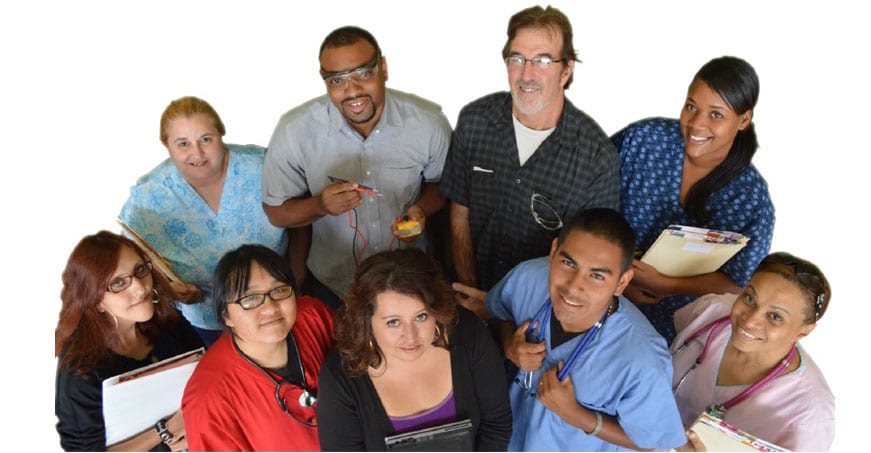In an increasingly diverse world, cultural competency has become a critical aspect of healthcare. Cultural competency refers to the ability of healthcare providers to understand, respect, and effectively interact with patients from diverse cultural backgrounds. It involves recognizing cultural differences, acknowledging their impact on health beliefs and behaviors, and adapting care delivery to meet patients' unique needs. In this blog, we will explore the role of cultural competency in healthcare, its importance in improving patient outcomes, and strategies for healthcare professionals to develop this essential skill.
Understanding Cultural Competency
Cultural competency encompasses a broad range of practices and attitudes that enable healthcare providers to deliver care that is respectful of and responsive to the cultural and linguistic needs of patients. It involves:
- Awareness: Recognizing one's own cultural beliefs, biases, and prejudices and understanding how they can impact patient care.
- Knowledge: Gaining knowledge about different cultural practices, health beliefs, and social determinants of health that affect diverse populations.
- Skills: Developing the ability to communicate effectively and provide care that meets the cultural and linguistic needs of patients.
- Attitudes: Fostering an attitude of openness, respect, and willingness to learn from and about patients' cultures.
The Importance of Cultural Competency in Healthcare
Cultural competency is essential for providing high-quality, patient-centered care. Its importance is reflected in several key areas:
Improved Patient Communication
Effective communication is the cornerstone of quality healthcare. Cultural competency enhances communication by:
- Reducing Misunderstandings: Understanding cultural nuances helps healthcare providers avoid miscommunication and ensure that patients fully understand their diagnosis, treatment options, and care instructions.
- Building Trust: When patients feel that their cultural background is respected and understood, they are more likely to trust their healthcare providers and engage in open, honest communication.
- Enhancing Patient Education: Culturally competent healthcare providers can tailor educational materials and explanations to align with patients' cultural beliefs and preferred communication styles.
Better Health Outcomes
Cultural competency contributes to better health outcomes by:
- Improving Compliance: Patients are more likely to follow treatment plans and preventive care recommendations when they feel their cultural beliefs are respected and incorporated into their care.
- Reducing Health Disparities: Culturally competent care helps address health disparities by providing equitable care to all patients, regardless of their cultural background. This includes understanding and addressing social determinants of health that disproportionately affect certain populations.
- Enhancing Patient Satisfaction: Patients who receive culturally competent care report higher levels of satisfaction with their healthcare experiences, which can lead to better overall health and well-being.
Increased Access to Care
Cultural competency also plays a crucial role in increasing access to care by:
- Breaking Down Barriers: Cultural and linguistic barriers can prevent patients from seeking care or fully participating in their treatment. Culturally competent healthcare providers can identify and address these barriers, making it easier for patients to access the care they need.
- Fostering Inclusive Environments: Creating a healthcare environment that is welcoming and inclusive for all patients encourages diverse populations to seek care and feel comfortable in healthcare settings.
Strategies for Developing Cultural Competency
Developing cultural competency is an ongoing process that requires commitment and effort. Here are some strategies for healthcare professionals to enhance their cultural competency:
Education and Training
- Cultural Competency Training: Participate in formal training programs that provide knowledge and skills for delivering culturally competent care. These programs often include workshops, seminars, and continuing education courses.
- Language Skills: Learning a second language or basic phrases in multiple languages can improve communication with patients who have limited English proficiency.
- Self-Reflection: Engage in self-reflection to understand your own cultural biases and how they may impact patient care. Reflecting on personal experiences and interactions with diverse patients can provide valuable insights.
Building Relationships with Diverse Communities
- Community Engagement: Engage with diverse communities to build relationships and gain a deeper understanding of their cultural practices and health beliefs. This can involve participating in community events, collaborating with cultural organizations, and seeking input from community leaders.
- Patient Feedback: Encourage and actively seek feedback from patients about their cultural needs and preferences. Use this feedback to improve care delivery and make necessary adjustments.
Integrating Cultural Competency into Practice
- Personalized Care: Tailor care plans to align with patients' cultural beliefs and practices. This may involve incorporating traditional healing practices, dietary preferences, and family involvement into the care plan.
- Use of Interpreters: Utilize professional medical interpreters to facilitate communication with patients who have limited English proficiency. Avoid using family members or untrained staff as interpreters to ensure accurate and confidential communication.
- Culturally Appropriate Materials: Provide educational materials and resources in multiple languages and formats that are culturally relevant and easy to understand.
Embracing Cultural Competency in Healthcare
Cultural competency is an essential component of delivering high-quality, patient-centered care. By understanding and respecting the diverse cultural backgrounds of patients, healthcare providers can improve communication, enhance patient satisfaction, and achieve better health outcomes. Developing cultural competency is an ongoing journey that requires continuous education, self-reflection, and a commitment to creating inclusive and equitable healthcare environments. As the healthcare landscape continues to evolve, embracing cultural competency will be crucial for meeting the needs of diverse patient populations and providing compassionate, effective care for all.



